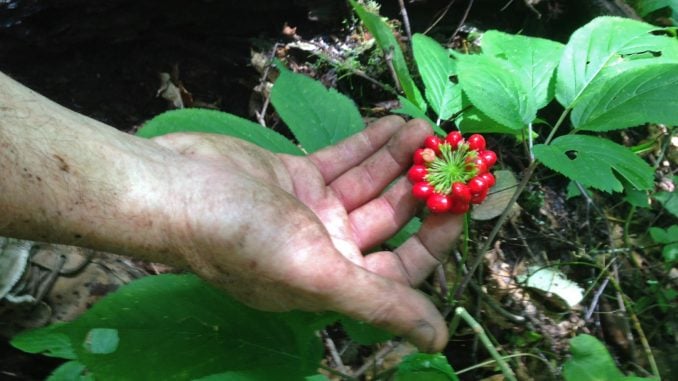
ASHEVILLE — The time period to apply for the popular ginseng harvest permits in two national forests in North Carolina is approaching.
The U.S. Forest Service announced Sunday the dates to apply for the permits in the Nantahala and Pisgah National Forests is June 10 through July 12.
A permit is required to collect wild ginseng in the two national forests during the designated harvest season. Those seeking a permit must call or visit a ranger district office and submit their name and address for the lottery.
Forest Service botanist Gary Kauffman says ginseng attracted prices of $600 to $900 a dry pound last year. It takes 300 plants to make one dry pound.
Notifications will be mailed to the winners before Aug. 16. District offices will start issuing permits to selected applicants Aug. 26.
The number of permits is limited to 136 annually and allows holders to harvest one to three wet pounds of wild ginseng. The season lasts two weeks from Sept. 1 through Sept. 15.
According to the release announcing the permit lottery, the Forest Service has increased law enforcement efforts to reduce poaching of wild ginseng. Removing a wild ginseng plant or its parts from national forests without a permit or outside of the legal harvest season is considered theft of public property. Penalties for plant poaching may include a fine up to $5,000 or 6-month sentence in federal prison, or both.
Ginseng root has been favored as a tonic primarily in East Asia for the past two-and-a-half centuries. In North Carolina, ginseng is more common in the mountains, very infrequent in the piedmont, and very rare in the coastal plain.

